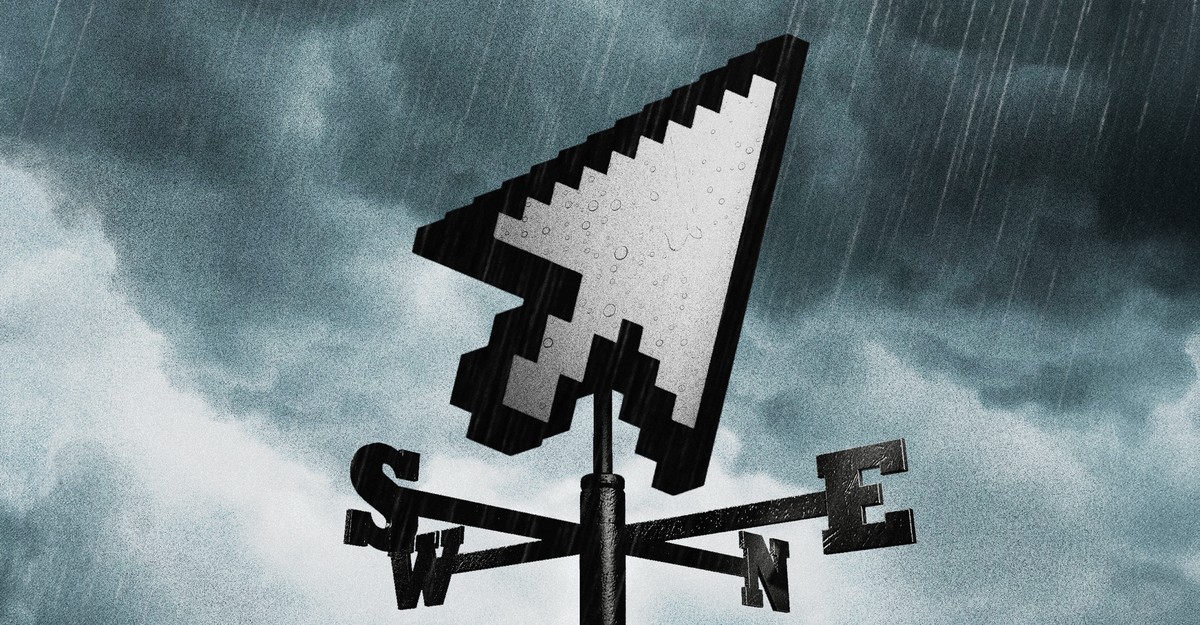- cross-posted to:
- [email protected]
- cross-posted to:
- [email protected]
The truth is, it’s getting harder to describe the extent to which a meaningful percentage of Americans have dissociated from reality. As Hurricane Milton churned across the Gulf of Mexico last night, I saw an onslaught of outright conspiracy theorizing and utter nonsense racking up millions of views across the internet. The posts would be laughable if they weren’t taken by many people as gospel. Among them: Infowars’ Alex Jones, who claimed that Hurricanes Milton and Helene were “weather weapons” unleashed on the East Coast by the U.S. government, and “truth seeker” accounts on X that posted photos of condensation trails in the sky to baselessly allege that the government was “spraying Florida ahead of Hurricane Milton” in order to ensure maximum rainfall, “just like they did over Asheville!”
As Milton made landfall, causing a series of tornados, a verified account on X reposted a TikTok video of a massive funnel cloud with the caption “WHAT IS HAPPENING TO FLORIDA?!” The clip, which was eventually removed but had been viewed 662,000 times as of yesterday evening, turned out to be from a video of a CGI tornado that was originally published months ago. Scrolling through these platforms, watching them fill with false information, harebrained theories, and doctored images—all while panicked residents boarded up their houses, struggled to evacuate, and prayed that their worldly possessions wouldn’t be obliterated overnight—offered a portrait of American discourse almost too bleak to reckon with head-on.
Even in a decade marred by online grifters, shameless politicians, and an alternative right-wing-media complex pushing anti-science fringe theories, the events of the past few weeks stand out for their depravity and nihilism. As two catastrophic storms upended American cities, a patchwork network of influencers and fake-news peddlers have done their best to sow distrust, stoke resentment, and interfere with relief efforts. But this is more than just a misinformation crisis. To watch as real information is overwhelmed by crank theories and public servants battle death threats is to confront two alarming facts: first, that a durable ecosystem exists to ensconce citizens in an alternate reality, and second, that the people consuming and amplifying those lies are not helpless dupes but willing participants…
… “The primary use of ‘misinformation’ is not to change the beliefs of other people at all. Instead, the vast majority of misinformation is offered as a service for people to maintain their beliefs in face of overwhelming evidence to the contrary”…
… As one dispirited meteorologist wrote on X this week, “Murdering meteorologists won’t stop hurricanes.” She followed with: “I can’t believe I just had to type that”…



To elaborate on what others have replied already, the algorithms will show you what will keep you on the platform, not what you like. Optimising for this means keeping you angry, not happy. Angry and divided people stick around so they can tell the other side how wrong they are (or watch their favourite pundit do that for them)
So just leave the platform
Sure, and just quit heroin while you’re at it.
Facebook doesn’t cause physical dependency on a chemical like opioids or even benzos. Being “”“addicted”“” to Facebook is like being “”“addicted”“” to weed.
They are different kinds of addictions. You can very much be addicted to the lifestyle and coping mechanism of weed. Hell you can be addicted to going to the gym or shopping. People could very much be addicted to something that is so core to their identity.
Yup, but that’s not the same. Alcohol withdrawals can kill you. Nicotine/Opioid/Benzo withdrawals can seriously hurt you. With weed or tiktok? It’s just hard.
Yeah, not arguing lethality, but it has been studied that weed can be addictive. Either way, my point was that people can be addicted to almost anything. Pair that with mental issues and you can have very serious issues with removing the addiction.
Can be addictive psychologically, so can masturbation or anything else. The answer is to just stop. Whole different ballgame from actual physucal addiction.
Saying just stop isn’t feasible. Psychological addictions become physical. Some people want to stop but can’t, that’s why it’s an addiction. Saying the answer is “just stop” honestly shows a misunderstanding of addictions, the reason they happen, and their effects.
Lately when an article or comment interests me I’ve been attempting to dig into it and make sure my beliefs hold water, I like to be skeptical but informed. Here’s some stuff I found and it’s here if you’re feeling open minded or curious.
Canadian Gov on weed and addiction
Communities of people who struggle to stop using cannabis. Many first hand accounts from long term users: https://old.reddit.com/r/leaves/ https://old.reddit.com/r/addiction/ https://forum.weedless.org/
A podcast with Mathew Hill
Mathew Hill’s lab is not against cannabis. It’s focus is on understanding THC in the body.